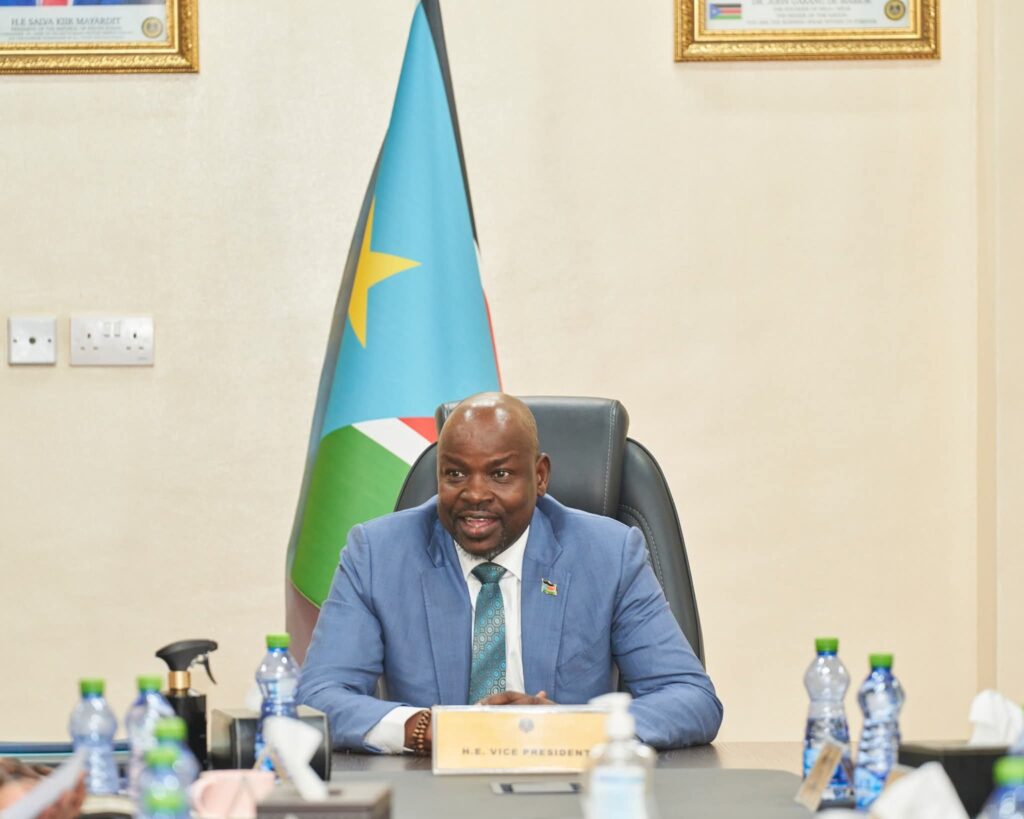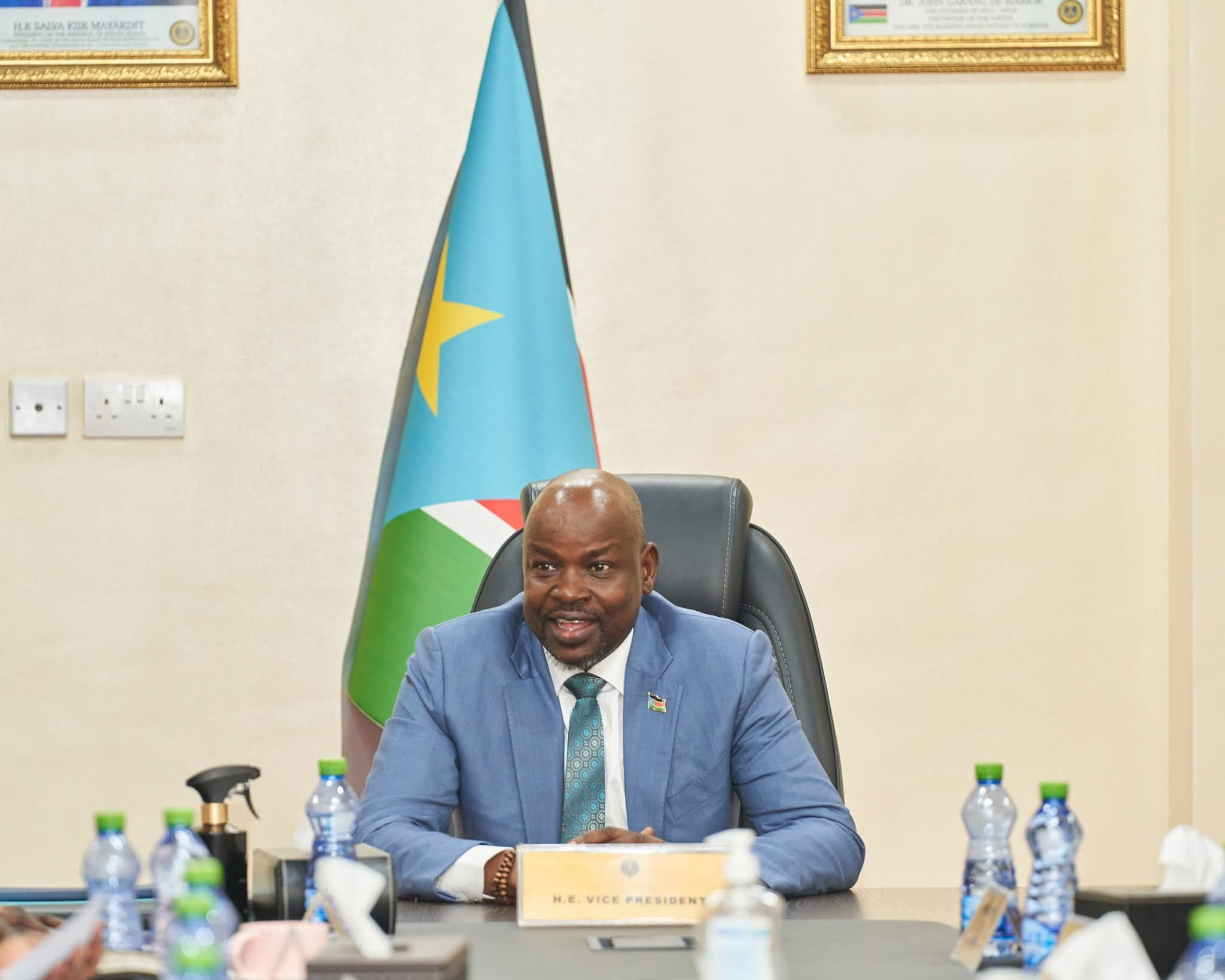South Sudan's English Daily Newspaper
"We Dare where others fear"

By Jenifer James
The Economic Cluster, chaired by Vice President Dr. Benjamin Bol Mel, on Wednesday approved an estimated resource envelope of SSP 5.2 trillion for the 2025–2026 fiscal year.
The approval followed the Ministry of Finance and Planning’s submission of its proposed national budget during the cluster’s recent meeting, marking a key step towards finalising the country’s economic framework for the coming year.
In a statement from SSBC, the vice president and chairperson of the Economic Cluster, Dr. Benjamin Bol Mel, confirmed the approval of the estimated resource envelope for the 2025–2026 fiscal year, amounting to 5.2 trillion South Sudanese pounds.
Dr. Bol Mel emphasised the importance of sound financial management, stating, “We must uphold fiscal discipline, ensure transparency, and adopt a people-centred approach to budgeting and public spending.”
He stressed that the budget decisions extend beyond mere figures, saying, “The decisions taken are not just about numbers; they are about futures and opportunities for every citizen.”
Meanwhile, the Minister of Environment and Forestry, Josephine Napwon Cosmos, noted that the budget will rely heavily on revenues collected by the National Revenue Authority and income from oil production, coordinated by the Ministry of Petroleum.
Napwon emphasised that agriculture and mining will be key investment priorities under the new budget, aimed at diversifying the economy and creating job opportunities.
Key sectors identified in the budget include agriculture and mining, which are seen as crucial to “unlock our nation’s vast potential.” The budget also emphasises ensuring timely payment of public servants’ salaries and expanding humanitarian assistance to “uplift vulnerable communities across the country.”
The Economic Cluster further discussed the implementation of President Salva Kiir Mayardit’s national master plan to empower youth. A vital element of this plan is the adoption of a new intellectual property policy designed to “protect the innovations of young South Sudanese, support the growth of our creative and cultural industries, and provide real avenues for young people to monetise their talents and ideas.”
The meeting also reaffirmed South Sudan’s commitment to advocating for a global financial system that is “inclusive, fair, and responsive to the needs of developing nations.”
The national budget will be tabled before the Council of Ministers for review and subsequently presented to Parliament for approval.




